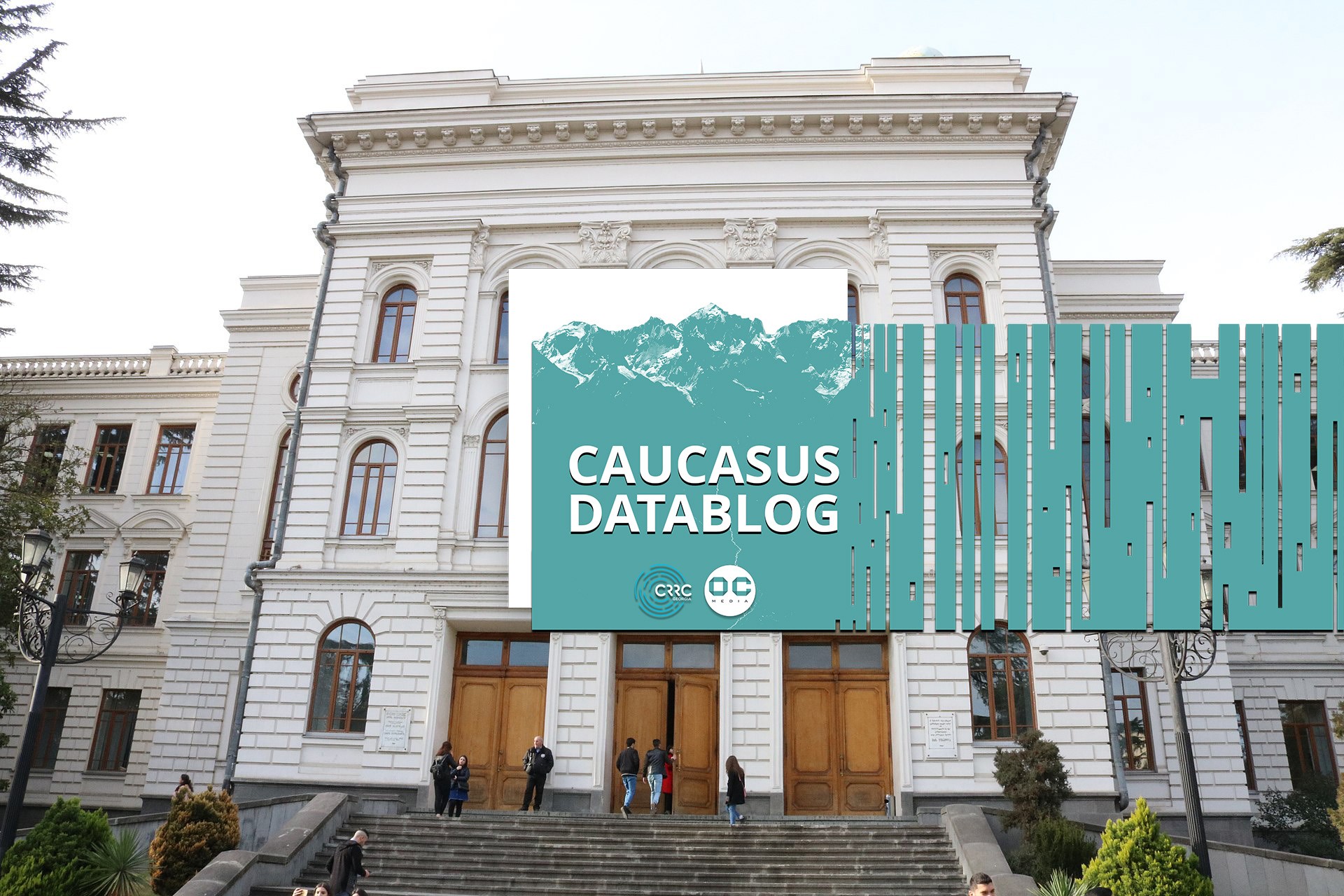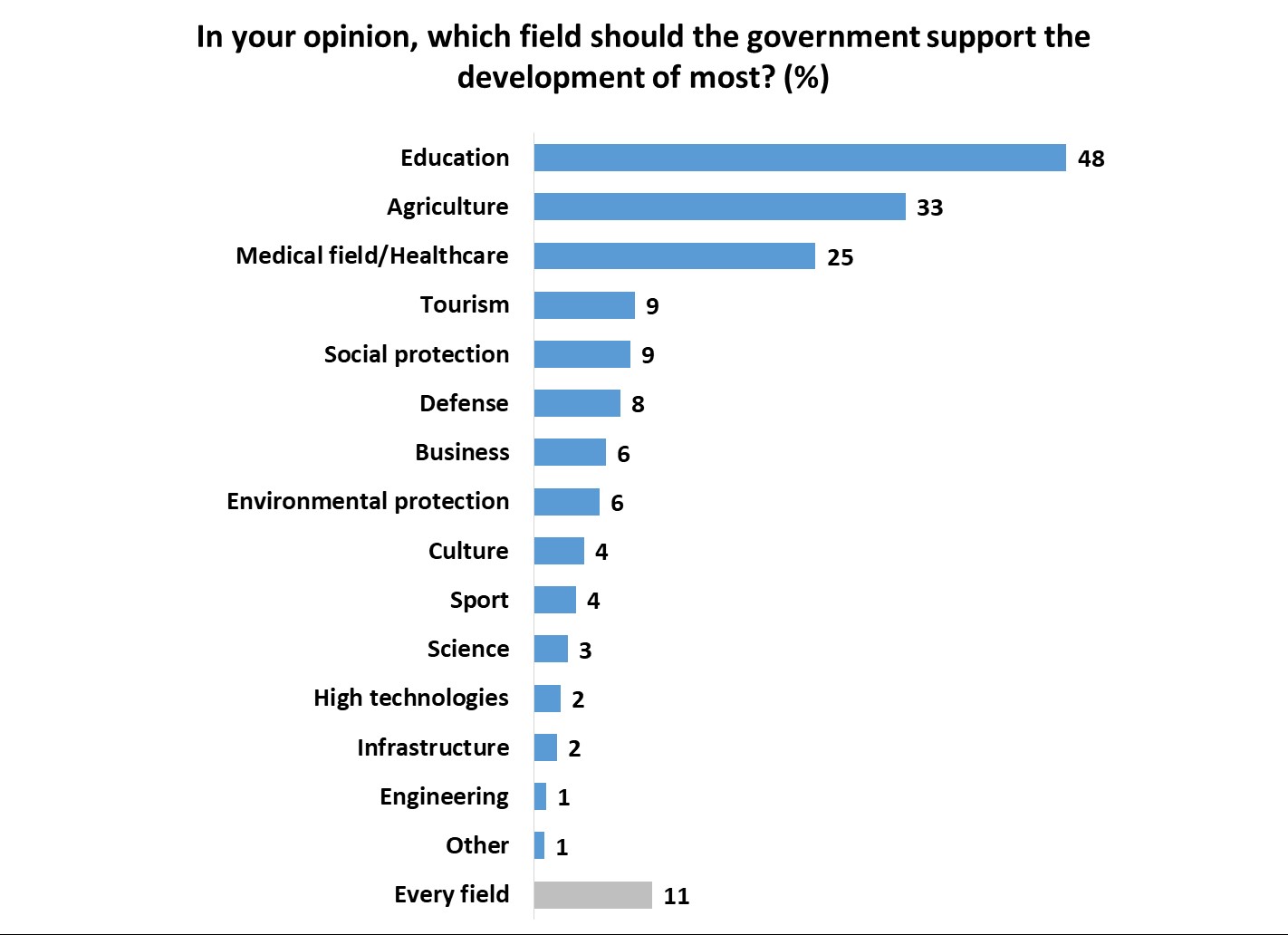
Georgia’s government committed in 2019 to expanding education funding to 25% of the state budget by 2022. Yet recently released data shows that young people in Georgia want more than they receive.
A study conducted in 2021 by CRRC Georgia for GFSIS focusing on the values and political activism of young people in Georgia shows that education is the primary field that young people aged 18–29 in Georgia want to be strengthened.
Young people prioritise the development of education above other domains. Almost half of young people (48%) mentioned education when asked what field the government should support most. The next most common response was agriculture, which was named by a third (33%). Healthcare came in third, with a quarter of respondents naming this as a priority.

A regression model suggests that whether young people prioritise education varies according to a number of factors.
Women were eight percentage points more likely to name education than men.
Young people in rural areas named education less (49%) than those in the urban areas (56%) and the capital (57%).
The younger a person was, the higher the chance they named education. The probability of someone aged 18–21 naming education was 61% compared to 48% for someone aged 26–29.
Those with at least some tertiary education also name education more often. Young people with some tertiary education were 13 percentage points more likely to name education than young people with only secondary education.

That university students and recent graduates think that education should be a top priority may point to dissatisfaction with the quality of higher education.
Other data in the study supports this conjecture.
When asked to what extent the level of education in Georgian higher education institutions was satisfactory, almost half of those with at least some tertiary education expressed dissatisfaction in contrast to about one-third with secondary education.
Aside from demographics, young people’s attitudes towards the West also predicted whether or not they think education should be a top priority. Young people who said that integration with the European Union or NATO was very important to them were more likely to say that education should be a top priority compared to those who report EU/NATO integration was quite important or not that important.
Overall, the findings suggest that education is a top priority for young people aged 18–29 in Georgia. This is especially important for young women, those under 22, those living in the capital, those with experience in higher education, and those with pro-Western attitudes.
The views presented in the article are the author’s alone and do not necessarily reflect the views of GFSIS, CRRC Georgia or any related entity.
Note: The analysis above is based on a logistic regression model. The variables included in the regression include sex, age group, settlement type, and level of education. The analysis which included attitudes towards NATO and EU integration was conducted using a second and third model, where importance of NATO/EU integration were included as categorical variables in addition to the aforementioned variables. The data used in this blog post are available here.








